Raleigh’s rental market continues to grow, driven by steady population increases, thriving universities, and expanding tech and healthcare industries. This creates opportunity for landlords but also challenges. Even in a high-demand area, a single vacancy, roof repair, or insurance hike can quickly eat away at rental income if there isn’t a financial plan in place.
Budgeting provides landlords with a clear framework for managing income and expenses while preparing for the unexpected. At PMI Raleighwood, we help investors establish practical budgets that protect profits and encourage growth. Success begins with consistent processes, such as streamlined rent collection, that ensure reliable monthly cash flow.
Key Takeaways
- Conservative projections prevent inflated expectations about rental income.
- Emergency reserves protect against unexpected repair or replacement costs.
- Strategic upgrades increase tenant appeal and boost property value.
- Year-round tax planning saves money and reduces financial stress.
- Professional systems make scaling multiple properties more manageable.
Keep Income Projections Realistic
Rental income projections often look better on paper than in reality. For example, a property earning $2,200 per month appears to generate $26,400 annually. But when a 5% vacancy allowance is applied, projected income drops to around $25,080.
Even in competitive Raleigh neighborhoods, turnover happens. Students graduate, families move, and professionals relocate. Building conservative income projections ensures landlords can cover expenses without financial strain during these gaps.
Pro tips for accurate forecasting:
- Always include a 5–7% vacancy buffer in your budget.
- Study neighborhood-specific rent averages, not just citywide figures.
- Track your historical turnover costs and incorporate them into future projections.
Understand the True Costs of Rental Ownership
Rent is only one side of the profitability equation. Landlords must plan for both fixed and variable expenses.
Fixed costs include:
- Mortgage payments
- Insurance premiums
- Property taxes
Variable costs often include:
- Ongoing repairs and maintenance
- Landscaping, pest control, and cleaning services
- Utilities, if paid by the landlord
- Property management fees
Some landlords hesitate to include management costs, but PMI Raleighwood clients often see them as investments. Professional oversight shortens vacancies, reduces errors, and ensures accurate accounting, which often offsets the fees.
Protect Cash Flow With a Reserve
Emergencies are part of rental ownership. In Raleigh, HVAC units work hard in summer, storm damage is possible in spring, and unexpected appliance failures can occur anytime.
A reserve fund prevents emergencies from crippling monthly income. By setting aside 5–10% of rent, landlords build a cushion that turns crises into routine business expenses instead of financial emergencies.
Examples of reserve use:
- Replacing or repairing HVAC systems
- Addressing storm-related roof or siding damage
- Emergency plumbing or electrical repairs
- Appliance replacements
Invest in Upgrades That Pay Off
Not all spending reduces profit—some investments boost it. Strategic upgrades attract quality tenants, reduce vacancy, and justify higher rents.
High-value upgrades for Raleigh rentals:
- Energy-efficient appliances and fixtures
- Fresh flooring and neutral interior paint
- Smart locks and home security features
- Landscaping and curb appeal improvements
When combined with strategic leasing practices, these upgrades reduce vacancy rates and increase rental longevity.
Track Finances With Professional Tools
Accurate records are essential to effective budgeting. Paper receipts and spreadsheets leave too much room for mistakes.
PMI Raleighwood offers detailed financial reporting that includes monthly statements, expense tracking, and tax-ready summaries. With clear visibility into income and costs, landlords can make confident decisions and adjust budgets proactively.
Benefits of professional tracking:
- Transparent income and expense reporting
- Easier year-end tax preparation
- Identification of performance trends across properties
- Reduction in financial guesswork
Budget With Taxes in Mind
Taxes can significantly reduce profitability if not planned for in advance. Raleigh landlords should budget with deductions in mind.
Common deductions include:
- Mortgage interest – one of the largest tax breaks for property owners.
- Management fees – deductible as a business expense.
- Repairs – deductible in the year incurred.
- Travel expenses – mileage for inspections or meetings may qualify.
- Depreciation – spreads property value deductions over several years.
Recording these throughout the year makes tax season smoother and ensures landlords don’t miss opportunities to save.
Scale Without Losing Control
Adding properties increases opportunity but also complexity. More tenants, more repairs, and more financial tracking can quickly overwhelm owners without systems in place.
Per-property budgets help landlords see which properties are performing well and which need attention. Grouping services like landscaping or pest control reduces per-unit costs. With PMI Raleighwood’s project management support, landlords can scale without sacrificing organization or oversight.
Budgeting as an Ongoing Practice
A budget is not something to create once and set aside—it’s an evolving plan. Reviewing reports quarterly, adjusting reserves, and revisiting upgrades help landlords keep income steady and properties competitive.
Turning Plans Into Profits
Raleigh’s rental market offers opportunity, but consistent success requires preparation. PMI Raleighwood helps landlords create and manage budgets that protect income, minimize risk, and build long-term profitability. Take the next step by reaching out through this contact page and let our team create a smarter financial plan for your rentals.
FAQs
How much do property management fees cost in Raleigh?
Most Raleigh property managers charge between 8–12% of monthly rent. While this may seem like an additional expense, the services included—tenant placement, rent collection, and maintenance coordination—often lead to stronger profits over time.
What are property tax rates in Raleigh, NC?
Wake County property taxes average around 0.9–1% of assessed value. For a $300,000 property, this means budgeting about $2,700–$3,000 per year. Including this in your budget ensures no surprises when tax bills arrive.
How much should landlords save for annual maintenance?
Most experts recommend saving at least 1% of the property’s value each year for maintenance. For a $250,000 home, that equals $2,500 annually for repairs and upkeep.
Do short-term rentals require different budgeting in Raleigh?
Yes, short-term rentals come with higher turnover costs, cleaning fees, and utilities. While they may generate higher gross income, these additional expenses should be carefully planned for in the budget.
Which upgrades provide the strongest ROI in Raleigh rentals?
Energy-efficient appliances, updated kitchens and bathrooms, modern flooring, and curb appeal improvements consistently attract tenants faster and support higher rental rates.



